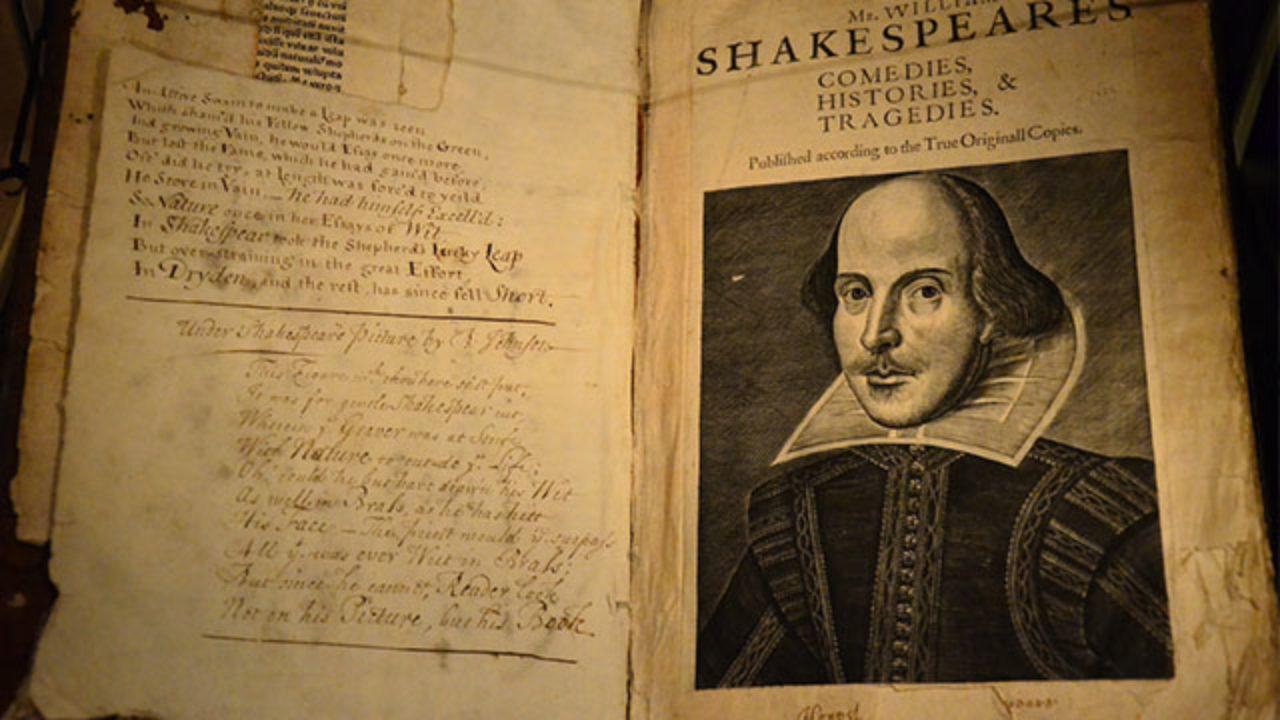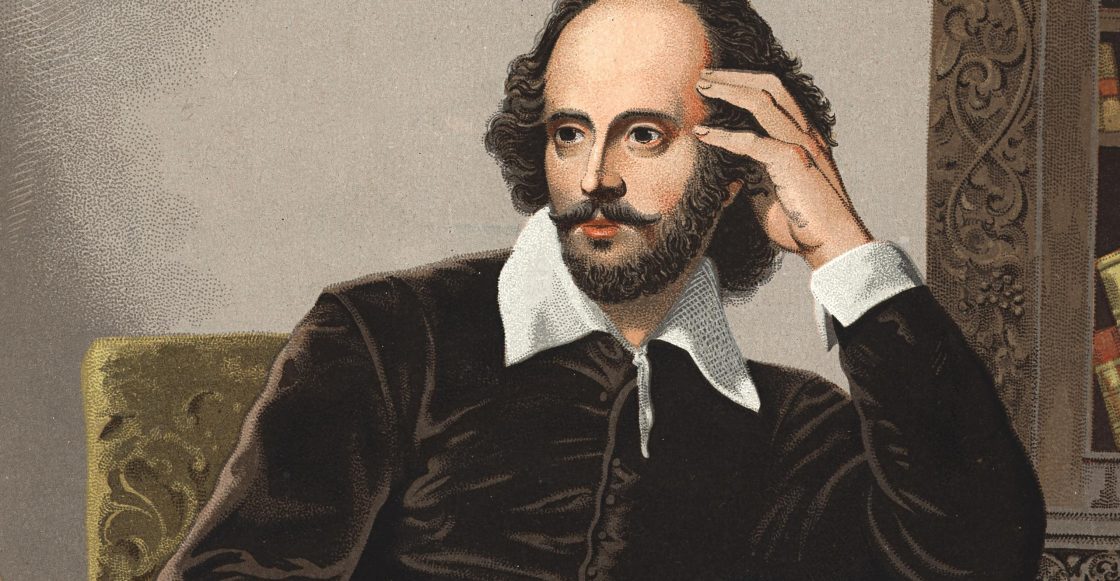
Comedies and tragedies of William Shakespeare.
The works of William Shakespeare are a treasure for world literature; this man was a British poet, playwright and stage actor who lived between the XNUMXth and XNUMXth centuries. However, the cultural impact of his works has transcended the ages. Today he is considered an icon of the arts, letters and popular culture of the West. There are those who have him as the most important author of all time in the English language.
Shakespeare's plays span comedy, historical dramas, and tragedy. These are part of the Elizabethan theater tradition, but stand out among those of other authors for their quality and significance. His greatness lies both in the novel use of the language, and in the verisimilitude, rawness and universality of the characters he created.
William Shakespeare and the validity of his legacy
The aforementioned characteristics have kept William Shakespeare's plots, phrases, and characters alive throughout the centuries. At different times the works of his authorship have inspired other writers, plastic artists, dancers, actors and filmmakers. Furthermore, his creations have been translated into countless languages. He also wrote sonnets and poems.
There is still some discussion today about the authorship of his pieces. This is said primarily because Shakespeare's non-aristocratic origins are inconsistent with the quality and richness of his writing. It is also said because there are few documentary sources that support the events of his life. However, most critics attribute his works to a single author named William Shakespeare, who was also an actor and co-owner of the famous London theater company called Lord Chamberlain's Men.
Biography
Birth and family
William Shakespeare was born in the town of Stratford-upon-Avon on April 23, 1564, or on some date close to the same month. There is certainty regarding his baptism, which occurred on April 26 of that year in the Church of the Holy Trinity in Stratford.
He was the son of the marriage formed by John Shakespeare and Mary Arden, a merchant with some relevance in his community and the heiress of a Catholic landowner.
Studies
It is believed that during his childhood he attended Stratford Grammar School, the local elementary school to which he had access due to the social position of his parents. If this assumption is true, there he learned advanced Latin and English and studied classical literature of antiquity.
The rest of his education is assumed to be autonomous, through books from various sources.. Hence, many specialists assumed that William Shakespeare had special cognitive conditions above the population mean. These skills They made him famous, but also many enemies.

Portrait of William Shakespeare.
Marriage
At the age of 18 (in 1582) the writer married Anne Hathaway, the daughter of a local farmer. From the union three children were born. It is conjectured that he had many extramarital affairs, and even that Shakespeare was homosexual. Little else is known with exactitude of the youth of the playwright.
Moving to London and joining the Lord Chamberlain's Men company
In the late 1880s the writer moved to London. By 1592 he already enjoyed a certain fame and recognition as an actor and playwright on the city scene. During his stay in London he wrote and premiered the vast majority of his plays for theater, he became popular and enjoyed economic prosperity.
Around those years he joined the Lord Chamberlain's Men company, one of the most popular of the time and sponsored by the crown..
Return to Stanford and death
Between 1611 and 1613 he moved again to Stratford, where he faced some legal problems associated with the purchase of some land. The writer's pen never finished creating, Shakespeare was always seen creating plays and poems, his literary production was prodigious.
William Shakespeare died in 1616, the same day as his 52nd birthday. (This, of course, if the calculations regarding the day of his birth are correct).
As if by something very dark and regrettable, her only son, Hamlet, died in infancy, and her daughters' sons had no offspring, so there are no living descendants of the marriage of Shakespeare and Hathaway.
William Shakespeare plays
His plays for theater are classified into comedies, tragedies and historical dramas.
Comedies
- The comedy of mistakes (1591)
- The two noblemen of Verona (1591-1592)
- Lost labor of love (1592)
- The Taming of the Shrew (1594)
- The sum of a summer night (1595-1596)
- The merchant of Venice (1596-1597)
- Much ado About Nothing (1598)
- As you like (1599-1600)
- The Merry Wives of Windsor (1601)
- King's Night (1601-1602)
- To a good end there is no bad beginning (1602-1603)
- Measure for measure (1604)
- Pericles (1607)
- Cymbaline (1610)
- Winter's Tale (1610-1611)
- The Tempest (1612)
Tragedies
- Titus Andronicus (1594)
- Romeo AND Juliet (1595)
- Julius Caesar (1599)
- Hamlet (1601)
- Troilus and Cressida (1602)
- Othello (1603-1604)
- The Lear King (1605-1606)
- Macbeth (1606)
- Antonio and Cleopatra (1606)
- Coriolanus (1608)
- Helm of Athens (1608)
Historical dramas
- Edward III (1596)
- Henry VI (1594)
- Richard III (1597)
- Richard II (1597)
- Henry IV (1598 - 1600)
- Henry V (1599)
- The king (1598)
- Henry VIII (1613)
Shakespeare also wrote poetry. In this literary genre, extensive mythological-themed poems stand out, such as, for example, Venus and Adonis y The rape of Lucrecia, but, above all, their Sonnets (1609)
Description of some of Shakespeare's most representative works
The Taming of the Shrew
It is a comedy in five acts preceded by a prologue, in which it is stated that the events to be developed make up a theatrical piece that he will appear before a drunken tramp, on whom a nobleman wishes to play a joke. This introduction (meta-theater) emphasizes to the viewer the fictional nature of the story.
The central argument was common in the literature and oral tradition of the time, even in Italian comedy: a sullen and rebellious woman whom her husband tries to tame. However, the development and characterization of the characters significantly differentiate it from previous works, this, of course, due to the fineness of its creator's pen. Today it is one of the most popular pieces of Shakespeare.

William Shakespeare phrase.
Its protagonist is Catalina Minola, a single woman daughter of a nobleman from Padua. Catalina despises her suitors and despises marriage. A different case is her younger sister, Blanca, who is a sweet and dreamy maiden with many suitors. Their father wants to marry Catalina first to respect the traditions, breaking the hearts of Blanca's suitors.
The arrival of Petruchio to the city, Catherine's suitor, unleashes a series of situations and confusion of identities. In the end, the man manages to tame Catalina's brave character and marry her. This work has been the inspiration for many novels and romantic comedies of later centuries.
Fragment
"Guild: I dont know. I would prefer to accept her dowry on this condition: that I be beaten every morning in the market place.
"Hortensio: Yes, as you say, there is little to choose between bad apples. But look: since this legal impediment makes us friends, let's be friends until, after helping Battista's eldest daughter find a husband, we leave the youngest to find a husband, and then we fight again. Sweet Bianca! Happy whoever wins you. Whoever runs the fastest gets the ring. Are you agree, senior Guild?
"Guild: Okay, yes. I will give my best horse to the one who, in Padua, begins to woo the eldest, woo her to the end, dispossess her, put her in bed, and free her home. Go!
(Gremio and Hortensio exit. Tranio and Lucenzio stay).
"Tranio:
I beg you, sir, tell me if it is possible
that love suddenly has so much force.
"Lucenzio:
Ah, Tranio, until I saw that it was true,
I never believed it was possible or probable.
Listen, while I, indolent, looked at her
I felt the effects of love in my indolence.
And now I frankly confess to you
to you, who are so intimate and dear,
as Anne was to the queen of Carthage,
that I burn, I consume and I die to win,
good Tranio, the love of this modest girl.
Advise me, Tranio; I know you can;
help me, Tranio; I know you'll do it".
Macbeth
It is one of the best known and darkest tragedies of the English playwright. It consists of five acts, in the first of which Macbeth and Banquo are introduced, two Scottish generals to whom three witches appear prophesying that one of them would become a king and father of kings, respectively. After this encounter Macbeth begins to be eaten up by ambition and fatally fulfills his destiny, assassinating the king, his friend Banquo and many others on his way to the throne.
The lust for power, betrayal, madness and death are the main themes of the work. Macbeth finally dies assassinated, this after giving a famous monologue on the nonsense of life. Thus all the prophecies are fulfilled, just as the Greek tragedies unfolded.
In this piece the influences of Sophocles and Aeschylus on Shakespeare's work are more than evident. This is not uncommon, the writer was a regular reader and admirer of Greek literature, of its great geniuses.
Fragment
"First scene
(A lonely place, thunder and lightning are heard. And three witches arrive).
"First witch:
When will the three of us meet again? Any occasion when thunder and lightning and lightning strike, or when it rains?
Second witch:
After the din is over, when the battle is lost and won.
"Third Witch:
That will happen before the sun goes down.
"First witch:
And where will we meet?
Second witch:
Among the bushes.
"Third witch
There we will meet Macbeth.
"First witch
I'm going, raggedy!
"All:
That scarecrow calls us… immediately! The beautiful is horrible and the horrible beautiful: let us fly through the fog and the corrupted air.
(They go)".
Sonnets
Shakespeare wrote many sonnets in the English manner over several years. They were finally published, with some omissions, in 1609. In later editions a definitive version consisting of 154 poems is finally collected.
The first 126 sonnets are addressed to a young man of unknown identity, others to a dark-haired lady, and others to a “rival” poet. The compilation is dedicated to “Mr. WH ”, a yet unidentified gentleman, although there are several theories. The characters to whom the lyrical voice sings, plus the uncertainty of the dedication, add to the mystery and controversy surrounding the sonnets and the life of Shakespeare in general.
The topics covered are love, awareness of death, family affections and beauty. However, it does so in a very different way from its predecessors and contemporaries. In these poems Shakespeare plays with the genres of his characters, dedicating the sweetest and happiest to a young man instead of a lady, making explicit satires and allusions to sex. It also sometimes alters the traditional structure of the English sonnet.
These sonnets have been translated into almost every language and reprinted countless times.
Sonnet 1
"We want them to spread, the most beautiful creatures,
his species, because the rose can never die
and when being mature, decays by time
perpetuate your memory, your young heir.
But you, dedicated to your bright eyes,
you feed the flame, your light with your essence,
creating famine, where there is abundance.
You, your own enemy, are cruel to your soul.
You, who are the fragrant, adornment of this world,
the only flag, that announces springs,
In your own cocoon, you bury your joy
and you do, sweet stingy, splurge on greed.
Have mercy on the world, or between you and the grave,
you will devour the good that this world owes ”.


